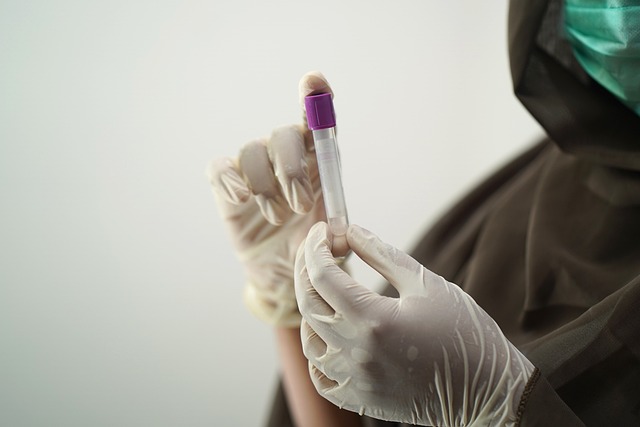Ulcerative Colitis: Effective Strategies and Treatment Choices
Managing ulcerative colitis requires knowing potential triggers, available medications, and lifestyle adjustments that support daily well-being. This guide highlights common treatment options, key symptoms to monitor, and important points to discuss with your healthcare provider.

Living with ulcerative colitis presents unique challenges that extend beyond physical symptoms. This inflammatory bowel disease impacts the innermost lining of the large intestine, creating a cycle of inflammation that requires ongoing medical attention. Understanding the full spectrum of treatment strategies available today empowers patients and their families to make informed decisions about managing this lifelong condition.
Recognizing Ulcerative Colitis Symptoms Early
Early identification of ulcerative colitis symptoms can significantly influence treatment outcomes and disease progression. Common warning signs include persistent diarrhea often containing blood or pus, abdominal pain and cramping, rectal bleeding, urgent bowel movements, and unexplained weight loss. Many individuals also experience fatigue, fever during flare-ups, and a reduced appetite. The severity and frequency of these symptoms vary considerably among patients, ranging from mild discomfort to debilitating episodes that interfere with daily activities. Recognizing these signs promptly allows healthcare providers to begin appropriate interventions before complications develop. Some people notice patterns in their symptoms, with periods of remission alternating with active disease flares. Keeping a symptom diary can help identify triggers and provide valuable information during medical consultations.
What Does Severe Ulcerative Colitis Look Like in Daily Life
Severe ulcerative colitis profoundly affects everyday functioning and quality of life. Individuals experiencing severe disease often have more than six bloody bowel movements daily, accompanied by significant abdominal tenderness and cramping. The constant need for bathroom access can limit social activities, work productivity, and travel plans. Many people with severe symptoms report feeling exhausted due to anemia from chronic blood loss and the body’s inflammatory response. Nutritional deficiencies become common as the inflamed intestine struggles to absorb nutrients properly. Emotional and mental health challenges frequently accompany severe physical symptoms, including anxiety about sudden flare-ups and depression related to lifestyle limitations. Some individuals require hospitalization during severe episodes to manage dehydration, electrolyte imbalances, and complications like toxic megacolon. The unpredictability of severe ulcerative colitis creates additional stress, as patients never know when symptoms might suddenly worsen.
Understanding Pictures of Ulcerative Colitis Through Medical Imaging
Medical imaging plays a crucial role in diagnosing and monitoring ulcerative colitis. Colonoscopy remains the gold standard, allowing physicians to directly visualize the intestinal lining and identify characteristic patterns of continuous inflammation starting from the rectum and extending upward. During colonoscopy, doctors can observe redness, swelling, ulcerations, and bleeding in affected areas, while also taking tissue samples for laboratory analysis. Imaging studies reveal the extent and severity of disease, helping guide treatment decisions. CT scans and MRI examinations provide additional information about complications such as bowel wall thickening, strictures, or abscesses. These imaging techniques help distinguish ulcerative colitis from other conditions like Crohn’s disease, which has different visual patterns. Regular monitoring through imaging allows healthcare providers to assess treatment effectiveness and detect changes in disease activity over time. Understanding what these images reveal helps patients grasp the nature of their condition and the rationale behind specific treatment recommendations.
Treatment Options and Healthcare Providers
Managing ulcerative colitis requires a multidisciplinary approach involving various healthcare professionals. Gastroenterologists serve as the primary specialists, coordinating care and prescribing medications tailored to disease severity and location. Colorectal surgeons become involved when surgical intervention is necessary. Registered dietitians help develop nutrition plans that minimize symptoms while ensuring adequate nutrient intake. Mental health professionals address the psychological impact of living with chronic illness. Primary care physicians monitor overall health and manage conditions that commonly occur alongside ulcerative colitis. Nurses and physician assistants provide education, support, and continuity of care between appointments. Many patients benefit from working with ostomy nurses if surgical treatment results in an ostomy. Pharmacists offer guidance on medication management, potential interactions, and strategies to improve adherence. Support groups and patient advocacy organizations connect individuals with others facing similar challenges, providing emotional support and practical advice. Building a strong healthcare team ensures comprehensive management that addresses all aspects of the disease.
Medication Strategies and Surgical Interventions
Treatment approaches for ulcerative colitis have expanded significantly in recent years, offering patients more options than ever before. Aminosalicylates like mesalamine reduce inflammation and are often first-line treatments for mild to moderate disease. Corticosteroids provide rapid symptom relief during flare-ups but are not suitable for long-term use due to side effects. Immunomodulators such as azathioprine and 6-mercaptopurine suppress the immune system to prevent inflammation. Biologic therapies, including anti-TNF agents and integrin inhibitors, target specific inflammatory pathways and have revolutionized treatment for moderate to severe cases. JAK inhibitors represent newer oral medications that block inflammatory signals. The choice of medication depends on disease severity, location, previous treatment responses, and individual patient factors. When medications fail to control symptoms adequately or complications arise, surgical options become necessary. Proctocolectomy with ileal pouch-anal anastomosis removes the diseased colon and rectum while preserving bowel continuity. Some patients require permanent ileostomy, where the small intestine is brought through the abdominal wall. Surgery can be curative since ulcerative colitis only affects the colon, though it requires significant lifestyle adjustments and carries its own risks and benefits that must be carefully weighed.
Lifestyle Modifications and Long-Term Management
Beyond medical treatments, lifestyle adjustments play an essential role in managing ulcerative colitis effectively. Dietary modifications can help reduce symptoms, though trigger foods vary among individuals. Many people find that limiting dairy products, high-fiber foods during flares, spicy foods, caffeine, and alcohol helps minimize discomfort. Eating smaller, more frequent meals and staying well-hydrated supports digestive health. Stress management techniques like meditation, yoga, and regular exercise can reduce flare frequency and severity. Adequate sleep supports immune function and overall well-being. Smoking cessation is crucial, as tobacco use worsens disease outcomes. Regular medical follow-up allows for early detection of complications and adjustment of treatment plans as needed. Staying current with vaccinations, particularly before starting immunosuppressive therapies, helps prevent infections. Bone density monitoring and supplementation may be necessary for those on long-term corticosteroids. Cancer surveillance through regular colonoscopy becomes important for individuals with extensive, long-standing disease. Maintaining open communication with healthcare providers about symptoms, concerns, and treatment side effects ensures optimal disease management and quality of life.
This article is for informational purposes only and should not be considered medical advice. Please consult a qualified healthcare professional for personalized guidance and treatment.




